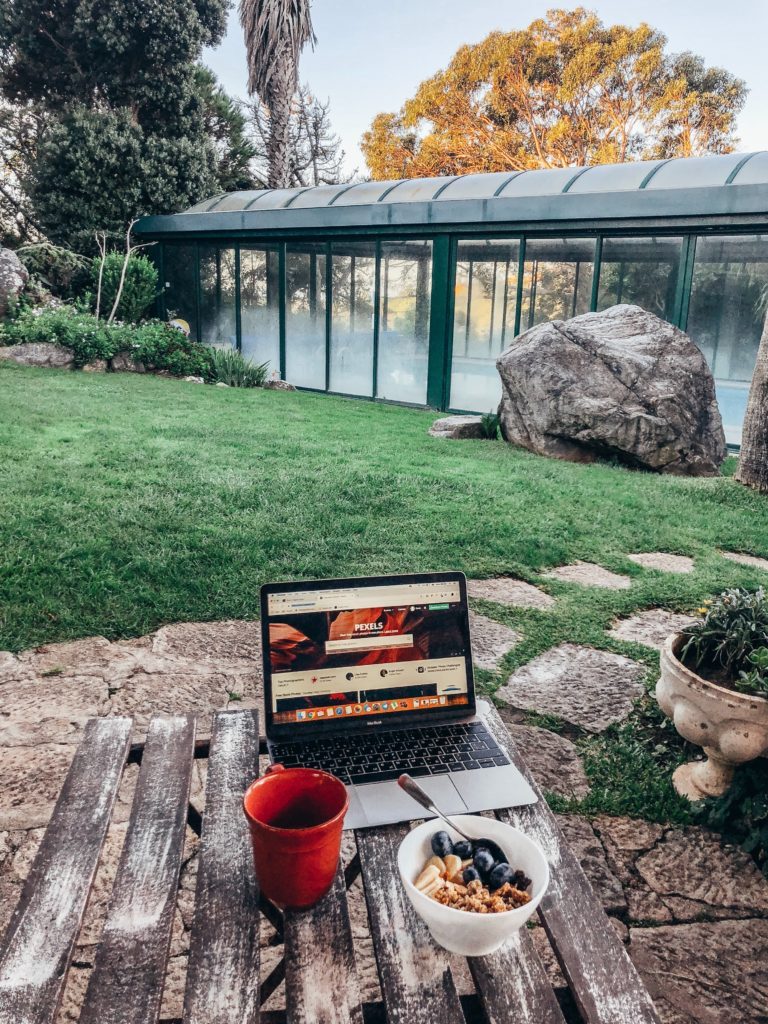In many situation of life we use the public wifi. At the same time, people are often unaware of the risks involved in using them. Wifis are often insecure, whether you’re working in a cafe, quickly researching a recipe at the supermarket, or surfing at the airport until you take off. Every time you log on to public wifi, you should make sure that you secure your privacy.
Secure with VPN in public WLAN
Once you are aware that open wifi carries many risks, you quickly start asking yourself questions. How can this problem be solved as quickly and easily as possible? A VPN with a Plug & Secure module can be plugged into the laptop in seconds and ensures instant and secure surfing. It couldn’t be simpler!
Dangers and risks in the public WLAN network
In an open wifi, cybercriminals can read your sent information and data packets. If a password or, for example, the pin of the credit card is entered on a website, it is a big risk. Keystrokes can be monitored in the café to spy on login data. Private conversations can be recorded.
Another danger: hackers can spread malware or viruses. You should “factor in” these risks when using public wifi without a VPN. This is true for both public Wi-Fis with and without a password.
It becomes especially sneaky when hackers recreate a wifi you know is identical. You copy the name of the network such as Starbucks Wifi. Your device will connect to the supposedly “familiar” network. So make sure that the “Automatically connect known wifi networks” feature is turned off.
Tips for public networks
A VPN gives you the greatest possible security while surfing. We have collected a few more tips to consider:
- Use strong and unique passwords. Weak passwords are easy to hack. A good mix of upper and lower case letters, numbers and other characters strengthens security. Avoid personal information such as date of birth or pet names. Hackers like to find this info on Facebook and Co.
- Make sure that your phone does not connect directly to a public network (change in settings). Background: If your phone automatically logs into the unsecured network, you will enter the wifi without VPN protection. To do this, activate two-factor authentication on your smartphone. It prevents a hacker from accessing the account. One receives a notification and can vigilantly follow all movements. If necessary, measures can be taken quickly, e.g. blocking the bank cards.
- Open only emails that are reputable and come from a trustworthy provider. Phishing texts in emails allow cybercriminals to capture confidential information. Do not open any foreign attachments or dubious links – especially not from providers you do not know.
- Use a killswitch that will disconnect your connection as soon as the VPN fails to protect. It prevents you from surfing online if the VPN connection is not 100% secure. Reason: There may be gaps in VPN coverage. A classic example: You log in to the wifi first and then start your VPN (wrong order). In just a few seconds, you are vulnerable to hacker attacks.
How does a VPN protect?
Originally, VPNs were invented to allow employees to access company data from home or the field office (remotely). A VPN masks one’s connection by going online with the private VPN server. Tablets, computers and smartphones are connected to the VPN.
The incoming and outgoing data is encrypted and made unreadable. This effect protects online activities, location, and your private and sensitive data. Even your smartphone can be operated via a VPN app. CISA (Cybersecurity & Infrastructure Security Agency) advises the use of a VPN in public wifi.
Secure everywhere with the VPN from Panamatele
You already know that there are many VPN providers on the market. We would like to reveal to you here what sets us apart from our competitors:
- Our servers are encrypted. We ensure that no third party gains physical access. Not even the government, because we do not have data retention!
- Our VPN technology has never existed like this before. We offer a one-time and automatic key exchange. There is a key exchange every 24 hours, which makes it impossible for hackers.
- Our AES Intrusion Detection and Prevention System immediately reports all suspicious movements to the VPN owner. Every network component is examined. As a team of experts and with ex-NSA employee Christoph Schumm, we offer years of expertise in this field.
Subscription
Almost all VPN providers offer monthly subscriptions. Some providers (we are one of them!) do not store log files, so your private online activities are not tracked. Depending on which country the VPN server is located in, the laws vary.
In Germany, VPN providers are, for example. obliged to hand over the log files in the event of suspected criminal activity. You should choose a trustworthy provider that does not store log files if possible. Always read the fine print before you sign up for a subscription!
The cheapest VPN subscriptions start from 5 EUR per month. VPN providers rely on a wide variety of encryption techniques and other add-ons. Don’t save at the wrong end. This is especially true for free VPN providers. Here you usually pay with your data, which they resell to commercial companies. We completely advise against free VPN providers! If you are not a fan of subscriptions, you can get your VPN from us via a one-time payment.
These are the subscription periods we offer at DN8:
- 1 month (We offer the test package once for 9.99 EUR monthly).
- 3 months
- 6 months
- 1 year
- 2 years
With us, you can protect up to 25 endpoints simultaneously. It’s especially worth it if you have a lot of endpoints. Phones, tablets and laptops should be equally protected. When choosing a VPN, make sure that you can connect multiple devices at the same time. Then you can talk on the phone and surf your browser at the same time – modern work!
PrivacyCube
We have developed the first VPN Cube that works with Plug & Secure. The Cube can be connected to any device without configuration. It is compatible with any operating system and any Internet-enabled device. The Cube enables highly secure and anonymous surfing.
What can the VPN cube for your pocket do?
When designing our cube, we paid special attention to mobile use. The Cube is a mobile wireless VPN router that fits in any pocket size. Even if you have a wifi coffee or washing machine, it will be protected. The PrivacyCube secures phone calls, video telephony, data transfer and chat functions. You will miss this feature with very many VPN providers.
Why is it ideal for traveling and on the road?
Our world is becoming more global and more digital. We are constantly on the move and have our laptop or smartphone with us. New Work stands for new working worlds. Employees either work in a home office, connect via video conference from an overseas office, or sit in a co-working space. Digital nomads work from anywhere in the world. Digital teams organize themselves across national borders.
This development brings new challenges in data security. The PrivacyCube is adapted to this New World – maximum data security while traveling. With its small size (65×58 mm) it fits in any pocket. Really anyone can use it, because the software is already pre-installed.







